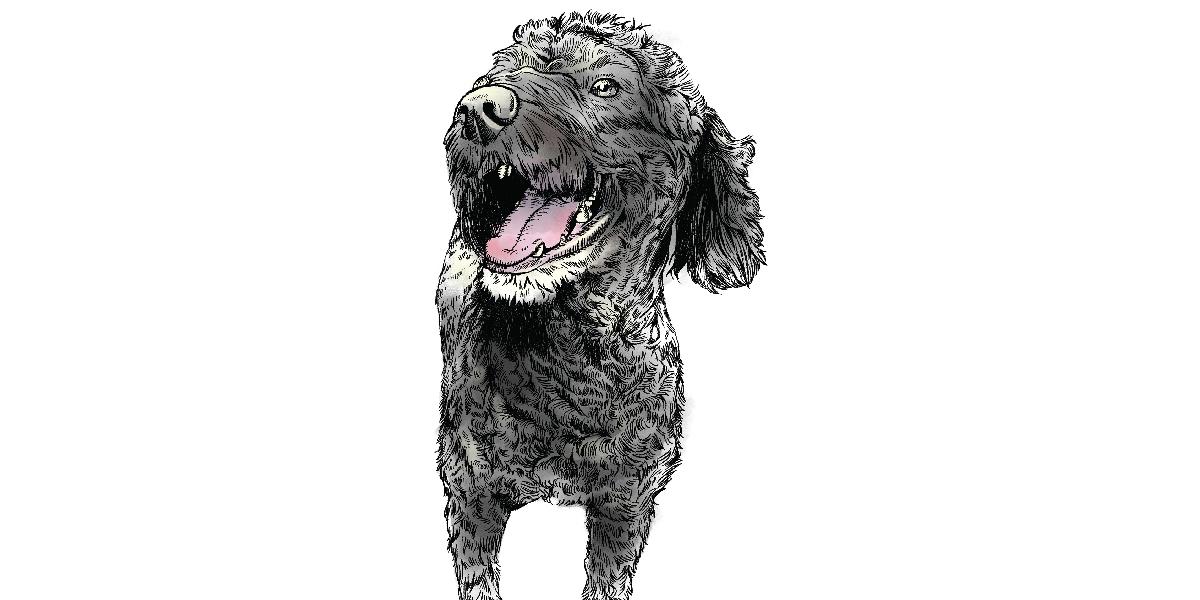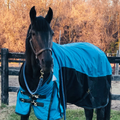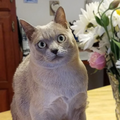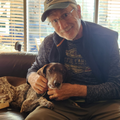Cowboy, Indy, Gypsy, Rigby, and Xena— these have been Darleen and Jim Cassidy’s beloved Portuguese Water Dogs. For 20-plus years, the Cassidys have entrusted their care to the University of Minnesota College of Veterinary Medicine’s (CVM) Veterinary Medical Center (VMC). From Indy’s perfect health, to Gypsy’s hip surgery, to the cancers that eventually took Cowboy and Rigby—the couple says their dogs’ care has been consistently outstanding.
“Everyone at the VMC is there to do the best they can for your animal,” Jim says. “It starts at reception [and extends to] the technicians who do X-rays or put in IVs, right up to the doctors.” That’s why the Cassidys have donated annually to the CVM, and it's why they’ll continue doing so for as long as they’re able.
The Foley, Minn., pair co-own a medical device distributorship. They first visited the clinic more than 20 years ago, after moving to Minnesota from California. One winter day, they noticed drops of blood in the snow where Cowboy had urinated. The Cassidys took advantage of the world-class research institution an hour away, and their positive experience has kept them coming back.
“It turned out Cowboy had bladder cancer,” Jim says. The Cassidys immediately trusted Jody Lulich, DVM, PhD, who delivered the tough diagnosis. Surgery succeeded in removing some of Cowboy’s tumor and preserving his quality of life for a time. “They gave us three good months with him before he passed,” says Jim. “Since then, whenever we’ve had any serious problems with any of our dogs, we’ve taken them to the VMC.”
Indy enjoyed good health, but the Cassidys' third dog, Gypsy, started having trouble with her hind legs at about 1 year old. “We took her to the U and she was diagnosed with quite severe hip dysplasia,” says Jim “Dr. Betty Kramek ended up operating on her and did a fantastic job.” The successful procedure, a triple pelvic osteotomy, involved cutting her pelvic bone in three places and rotating the segments to improve the ball-and-socket joint.
Most recently, VMC staff cared for Rigby, who joined the family as a puppy. “He was a phenomenal dog,” Darleen says. “Such personality—a trickster and the leader of the pack. He was magical.”
From the time they adopted him at 13 weeks, Rigby had a bump on his belly. They kept an eye on it, but when the bump became red and inflamed, the Cassidys brought him to the VMC. Rigby was found to have mast cell cancer. Although the athletic Rigby appeared healthy, the cancer had metastasized to his internal organs and lymph nodes.
Rigby considered himself part of the clinic’s staff. He had a fan club there.
Darleen Cassidy
Megan Duckett, DVM, a third year resident in oncology, helped the couple develop a treatment plan for Rigby. Together, they embarked on a regimen of chemotherapy that would arrest his tumors’ growth and give him several more months of comfortable living. “Dr. Duckett was devoted to making sure that he enjoyed his life,” says Jim. “Right up until the end, he could run and play.”
Rigby considered himself part of the clinic’s staff, Darleen says. “He had a fan club there.”
Today, the Cassidys are enjoying their newest family member, Xena, a nearly 3-year-old show dog who retired due to hip dysplasia. The couple adopted her last spring, and they feel good knowing she’ll have access to the same exceptional care their other dogs have had.
Giving to the College has been a no-brainer for the Cassidys. “We like to give what we can to something we care about,” Darleen says. “The VMC does such great work. The amount that we can part with goes up gradually, and we’d like to keep increasing it.”
Jim concurs. “If you look to medical schools and veterinary schools, the need is always going to be there. The opportunity to put your money—whether it’s a large or small amount—toward bettering the lives of people and companion animals is always a good investment.”




